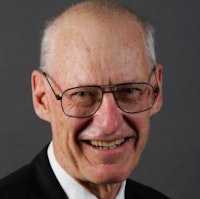Grooming a worldly Zoellick replacement
Robert Zoellick has announced that he will move on from his position as World Bank president at the end of his five-year term.
Sebastian Mallaby has taken the opportunity to write a hagiography eulogising the brilliance of Zoellick's transformation of the previously directionless and technologically-backward bank, all the more dazzling by comparing Zoellick's style with that of his predecessors. Of course this provoked an immediate response from defenders of the two 'Wolfies', Wolfensohn and Wolfowitz, who held the job before Zoellick.
But the more important issue is to judge Zoellick's tenure with more balance than Mallaby has managed.
All aid agencies suffer from the dissipation of effort which comes from having multiple objectives. The World Bank, subject to the conflicting priorities of its 187 member countries, and on the receiving end of the strongly-held opinions of the multitude of NGOs, suffers more than most. But Zoellick seemed to revel in spreading his influence widely. He took on the preservation of tigers, the health of the oceans and endorsed the Christmas-tree of multiple objectives in the UN Millennium Goals.
All these objectives are laudable, but the world still has billions of poor people and many governments which are doing an inadequate job in redressing this problem. There is a core body of work which the World Bank used to focus on, particularly providing basic infrastructure (water, sanitation) and the foundations for the economic growth that transforms the lives of poor people: electricity, roads, communications.
There will be conflicts between the objectives of growth, on the one hand, and the preservation of tiger habitats, pristine oceans, global warming and the environment in general. Finding workable compromises requires a serious debate and the World Bank can't effectively be on both sides of this discussion. Its priorities are the alleviation of poverty and its advocacy has to reflect this, no matter how unhappy this makes the single-interest NGOs.
If we were to judge the whole of Zoellick's long career in public service, again we might be less laudatory than Mallaby. Zoellick's driving motivation has been a single-minded pursuit of America's self-interest. This might seem entirely defensible: isn't that what public servants are supposed to do? Perhaps not always, when it conflicts with wider interests.
As US Secretary of Trade, Zoellick was important, perhaps instrumental, in the fundamental shift away from addressing world trade issues in a multilateral forum (the World Trade Organisation) in favour of creating misleadingly-titled free trade agreements, and bilateral protectionist deals which divert international trade from its optimal pattern. The result is the awful spaghetti bowl of different agreements with incompatible operational regulations.
Admittedly, the WTO multilateral framework has run into the dead end of the Doha Round, but in large part this is because the major developed countries have insisted on maintaining the sort of deep-seated domestic protection seen in Europe's agriculture. The US has its own examples of egregious domestic protection, which might have been a better target for Zoellick's attention.
At the same time, the US used the FTAs as a battering ram to gain access for Wall Street into the fragile financial markets of emerging countries. The FTAs were also used to reinforce US self-interest in international copyright rules, which are perpetually revised to preserve the Walt Disney franchise long after its originator is able to benefit from his creativity.
Zoellick left himself open to valid criticism of interference in domestic policies with his intrusive involvement in the efforts to privatise the Japanese postal system, which would have greatly benefited Wall Street. More recently, he offended Germans by criticising their role in the current euro crisis. He may well be right, but he has a habit of going well beyond the remit of the Word Bank.
He also brought an idiosyncratic view to issues of international economics with his advocacy of a return to the gold standard. From Australia's viewpoint, his proposal to replace the G20 with a smaller G13 group can only be described as unhelpful, misguided and patently outside his World Bank mandate.
His departure opens up an old issue: the traditional right of the US to occupy the top post at the World Bank. Of course this opportunity has revived the old pipe-dream of giving this role to a national from one of the emerging countries, a dream made more relevant by the changing world GDP balance. But nothing short of a revolution would put a non-US citizen into this role any time soon.
While the emerging countries dither in putting together concerted support behind a single strong candidate, the US is ticking off its own candidates. Larry Summers, an early suggestion, has been eliminated through his well-established ability to offend nearly everyone. But the US has a 'deep bench'; Hillary Clinton's name has been mentioned. A suitable US candidate will be found.
One hypothetical issue: would a President Romney chose Zoellick as his Secretary of State? Let's hope not.
Originally published by The Lowy Institute publication The Interpreter. Reproduced with permission.
















